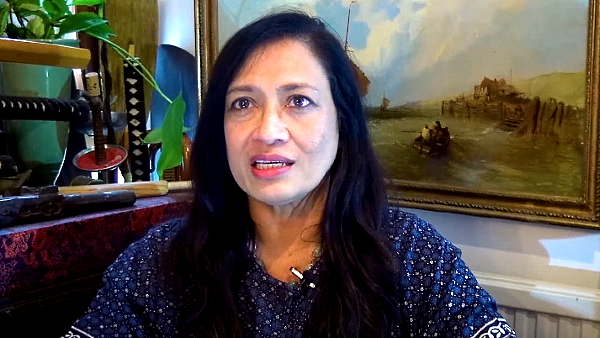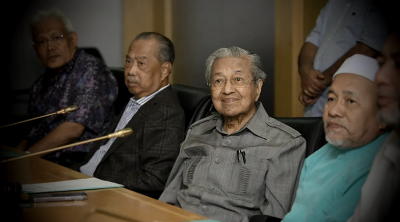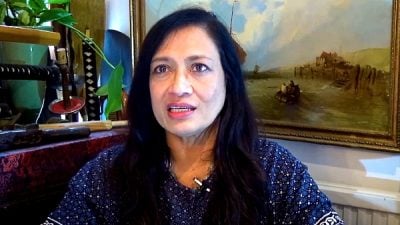
Criticizing non-Malay students at vernacular schools is distracting us from the real issue of poor quality Malaysian education.
On November 20, Bersatu Youth information chief Mohd Ashraf Mustaqim Badrul Munir stressed that vernacular schools should be abolished.
He told Bukit Mertajam MP Steven Sim that the latter had failed to notice that many non-Malay students at vernacular schools could not converse in the national language.
Despite being born in Malaysia and living in the country, Ashraf said these students lacked proficiency in Malay.
Citing the ease with which foreigners like the Bangladeshis, Pakistanis and Nepalese could speak Malay, Ashraf praised the foreigners for their ability to converse in Malay after a short stint in Malaysia.
He said that the foreigners spoke Malay without any accent and that their Malay grammar was far superior than that of the local students.
Isn’t Ashraf being disingenuous?
First. Most of the Bangladeshis, Pakistanis and Nepalese who stayed for a few months, or years, are here for the purpose of obtaining gainful employment.
They came here to find work and to send money home to their families. Most do low-skilled work for low wages.
If they did not quickly learn to speak Malay, how would they communicate with their employers, bosses and customers? Learning Malay is a necessity, not a luxury. They need Malay to find work.
Second. Is Ashraf aware that in Europe and Britain, migrant workers like the Bangladeshis, Pakistanis and Nepalese must also be fluent in the language most widely used in the country?
So in England, it will be English, in Germany, it is German, and in France, French.
If these economic migrants did not bother to learn the local languages, they would not be able to find work and remit money home.
Ashraf was wrong to be critical about the failure of non-Malay students at vernacular schools to be fluent in Malay.
Comparing the fluency in Malay of foreign workers and the relative lack of proficiency of Malay of non-Malay students at vernacular schools is like comparing durians and mangosteens. There is no comparison.
A week earlier, lawyer Mohamed Haniff Khatri Abdulla, acting for Gabungan Pelajar Melayu Semenanjung (GPMS) and Majlis Pembangunan Pendidikan Islam Malaysia (MAPPIM), argued that Malaysian vernacular school students would be hampered by limited job opportunities because of their alleged lack of proficiency in Bahasa Malaysia.
Both GPMS and MAPPIM were attempting to seek a court order to compel vernacular schools to drop the use of Chinese and Tamil as the medium of instruction.
Haniff claimed that these students would be denied the fundamental right to live with dignity and insisted that this was a good reason for Malay to be used as the medium of instruction.
However, is there any dignity in Malay leaders who may speak perfect Malay but steal from taxpayers?
Is Haniff not aware that there is active discrimination against non-Malay vernacular school students?
The non-Malays may probably speak better Malay than his Malay peers, but affirmative action policies will prevent them from accessing the best scholarships, jobs in government, or even a place in the armed forces.
They can’t even win a place at MARA boarding schools or some local public universities because of non-Malay quotas.
A handful of the best Malay-speaking non-Malay vernacular school students may be selected, but the majority will not be considered.
Few non-Malays are interested in entering the civil service because no matter how good they are, they will never reach the top positions because of affirmative action policies.
They are denied promotions. They can never advance to be CEOs or chairmen of GLCs or other public institutions.
They can speak the best Malay in Malaysia, but non-Malays will never be made vice-chancellor of the university or director-general of a ministerial department.
If Haniff and Ashraf are really concerned about literacy in schools, why not focus on the literacy problem in our national-type schools? The literary problem needs urgent and immediate solutions!
There is also the lack of professionalism in the teaching profession. The quality of our teachers leaves much to be desired. Absenteeism is high. There is also poor discipline not just among students, but also teachers.
Do Haniff and Ashraf ever wonder why ministers and the Malay and non-Malay elite send their children to international schools or overseas boarding schools?
One MP just enrolled his young son in a school in France recently.
We were once told that vernacular schools did not promote unity. Now, we are told that the lack of Malay proficiency is an issue.
Instead of picking on vernacular schools, politicians should first tackle the abysmal standard of education and low quality teachers found in national-type schools.
Using Malay fluency at vernacular schools is distracting us from more important issues.
Sources:
- Malaysiakini: ‘Bangladeshis speak better BM’ – Bersatu Youth wants vernacular schools abolished
- Malaysiakini: Vernacular school students will suffer from lack of BM proficiency – lawyer
(Mariam Mokhtar is a Freelance Writer.)
ADVERTISEMENT
ADVERTISEMENT






































